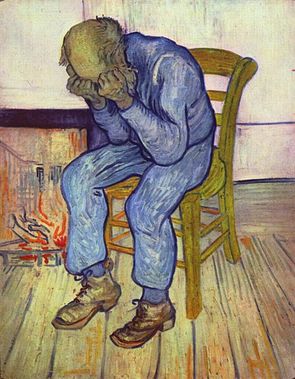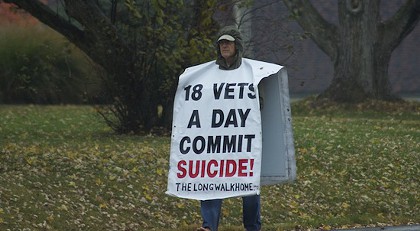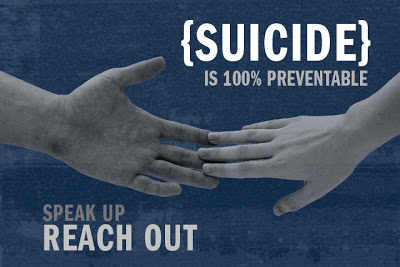The night before I voluntarily head to the hospital and I can't sleep. I guess that's not much of a surprise. What does surprise me is the appalling lack of information on the program I am about to try to check myself into. There is not a single review, first person account, or even description of the facilities anywhere to be found. Which means, I cannot prepare myself beyond bracing myself for the unknown.
This also means that I plan to pay as much attention as I can so that I can catalog the experience here for any other person who might try to find information on this program. I'm going to wait to add any details until I'm back. But I just wanted to give whoever has been reading an explanation as to why the blog is about to go dark for a couple weeks. Maybe I'll convince Erik to write a guest post. I doubt it.
Erik said to me earlier that he went to Air Force Basic Training to become better, even though he knew, for a variety of reasons, that it would be really hard. He said me going to the hospital is kind of like that. Even though we don't know for sure that it will make me better, we have to hope that it will.
Well, here's hoping.
The thing about depression is, even when you know it's coming, it always catches you by surprise. When I'm on the updraft, it's hard to believe I ever had a good reason for feeling so bad or being so useless. I convince myself that I was dramatic and selfish, that I blew it out of proportion. What could possibly be so bad to make me so lifeless?

Vincent van Gogh "At Eternity's Gate"
And then it hits me again. Sometimes it comes out of nowhere and sometimes it's a slow spiral, a circling of the drain. But always, it's a shock to my system, to my life. It shuts everything down, a giant rock covered in gorilla glue and shoved into the gears. There's nothing glamorous, relaxing, or fun about staying curled up on the couch or in bed day after day trying to imagine that tomorrow will be better.
Everything suffers, friendships, relationships, my marriage, my dogs, my health, my finances, and my mental health just deteriorates. I don't write; I don't talk; I don't bathe. I go to counseling, make sure we have milk, bread, and cereal, and come home. Otherwise, I haven't been outside in two weeks.
There's nothing anyone can do. Talking about it makes me feel worse. So, I do whatever I have to do to make it to the next day and the day after that.
I'm still here. And this, or some version of this, is happening to people all over the world, all around you. Are you seeing the signs? Do you know what they are? Do you know what to do?
According to the National Institute of Mental Health, 26.2 percent of Americans over 18 suffer from a diagnosable mental disorder in any given year. One in seventeen Americans suffers from a severe mental illness. As of 2012, among veterans, there are more suicide deaths among active duty soldiers than combat deaths. According to a new report issues by the Department of Veterans Affairs, every 65 minutes a military veteran commits suicide. Thirty one percent of these were committed by veterans under the age of 50. ( Suicide Rate Among Military Jumps)

A veteran protests the veteran suicide rate, which just jumped from 18 to 22 a day
Today, I went to a doctor's appointment. This appointment was made for me by the powers that be over a month and a half ago, after many phone calls and much grief, so I could get established with a new psychiatrist since Erik and I moved back to New Mexico. I arrived at the appointment today to find out that the doctor was a psychologist (therapy) and not a psychiatrist (medication). I already have a counselor. I need my medications managed.
When a person is in a mental health crisis and tries to get help, they frequently get put on hold, stuck in a waiting room, or otherwise thrown into a holding pattern. In case it's not obvious, a holding pattern is exactly the opposite of what a person in crisis needs.
I am sure that I am preaching to the choir here, so I won't go on much more. But just in case my point isn't clear yet, our mental health care system is even worse off than our medical care system. If behavioral health is covered (and this is a big if), it takes weeks, if not months to receive proper care. Once care is received, the medications are frequently not covered by insurance companies, and we are not talking about inexpensive meds. And then there is the continued management necessary to properly care for people with mental health issues, counseling, regular medical check-ups and check-ins. Sometimes this includes blood tests and other exams. If all of this is not completed on a regular schedule, patients get thrown off their schedule's of therapy and medication, symptoms worsen and this is where we start to lose people. They drop out of care, fed up with a system that doesn't work, or they give up on life all together.
Our veterans, our mentally ill, need our help. Visit Change.org to sign a petition that urges lawmakers to improve mental health care.

As people who have direct, lived experience with mental illness and addiction, as family members caring for our loved ones with these illnesses, as counselors and health care workers, and as leaders of behavioral health programs, we all call on you, the leaders of our Nation, to begin with us a road to recovery from the Newtown Tragedy.
Visit the new Veterans Crisis Line website to see how you can help save our veterans once they've left the battle field.
|





 RSS Feed
RSS Feed